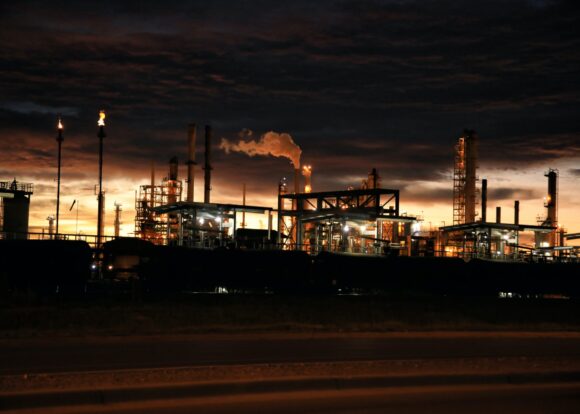Polyester, the darling of fast fashion, under attack

We are all aware that synthetic fibers like polyester are made from fossil fuels. But we never create the link from this to the climate. The Changing Markets Foundation regularly documents facts about fossil fashion to cut fossil fuel consumption in the fashion industry.
For the 2021 Glasgow climate conference Changing Markets published its report «Synthetics Anonymous.» In it, the NGO collects data on the consumption of fossil fuels by the 46 top fashion houses. Their research found that some brands produce up to 90% of their collections with fibers produced from fossil fuels.
In its «Fossil Fashion» report Changing Markets reports that the «production of polyester alone is leading to annual greenhouse gas emissions equivalent to 180 coal power plants and this is projected to nearly double by 2030.» Synthetic fibers today represent over two-thirds of all materials used in textiles, and their production requires more oil than the annual consumption of Spain. This uninterrupted trend clashes with these brands profiling themselves at the climate conference on their commitment to stop climate change, which Changing Markets describes as hypocrisy.
The problem, however, is not limited to greenhouse gas emissions only. The growth in the use of petrochemicals in fast fashion has a much broader impact on both the environment and society, as Changing Markets points out: «In addition to the climate crisis, fashion’s addiction to fossil fuels is also driving the waste crisis – from ubiquitous microfibre pollution to mountains of textile waste ending up in nature, landfills and incinerators.» Changing Markets documents the «clear correlation between the growth of synthetic fibers and the fast fashion industry – one cannot exist without the other.»
What can we do as producers and consumers? As consumers, we have a choice in our buying pattern, buying less and preferring slow fashion over fast fashion. And we can support actions like Changing Markets demanding transparency in the supply chain, plans to phase out virgin synthetics, and recycling. We, as producers, continue our pledge to slow fashion, optimizing further the ecological impact along our supply chain and moving towards circular fashion.
Photo credits: Robin Sommer on Unsplash